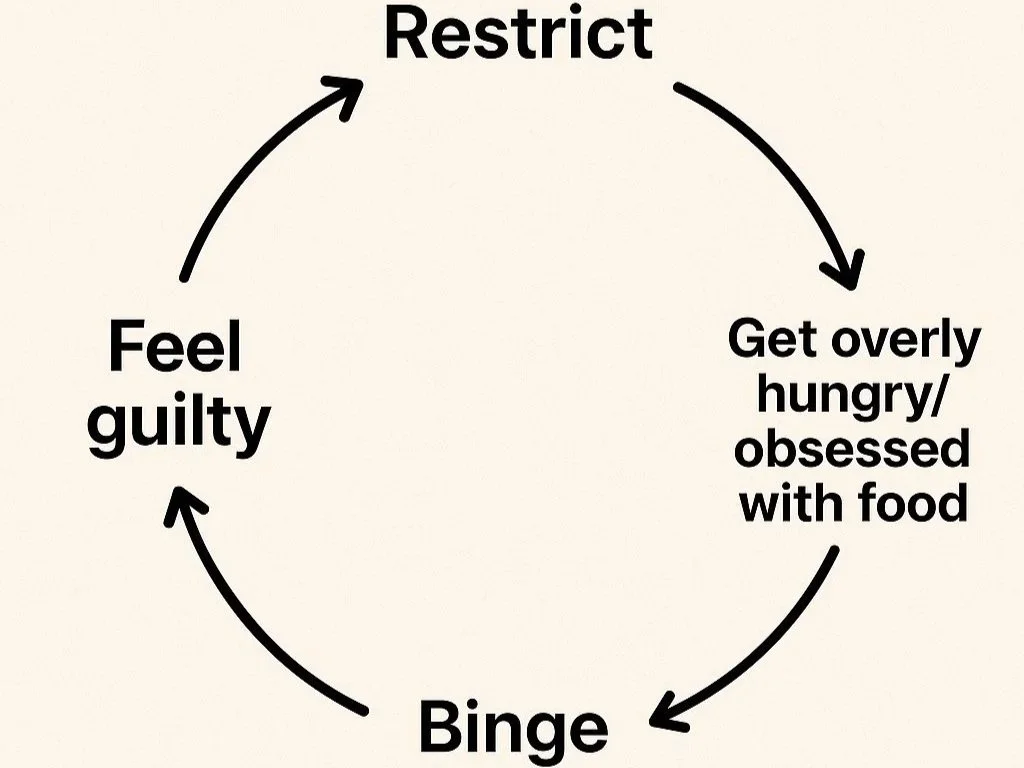A physiological response to under eating is to over eat! This is not about willpower, it is about biology and our bodies amazing drive and desire to keep us fed and… alive!
Read MoreUnderstanding that there is a genetically pre-determined weight range your body wants to sit within can be liberating as it allows you to let go of control and shift your mindset towards self-acceptance and redefining your relationship with food.
Read MoreWith calorie-tracking apps, sleep monitors, step counters, and a plethora of wearable devices, we can now monitor almost every aspect of our well-being and ironically, rather than improving our health, all this data might actually be increasing anxiety, disordered eating and body dissatisfaction.
Read MoreHere’s the truth: health is not a size, a weight, or a look. It is a collection of behaviours - not rules - that help you feel safe, nourished, whole and, support both mental and physical wellbeing.
Read MoreAmong the essential nutrients needed for recovery, protein provides the amino acids (the body’s building blocks), essential for rebuilding and repairing tissues, as well as restoring overall wellness.
Read MoreWe are human, we are unique, let’s stop trying to fight our genetics and instead respect and learn to accept them and our bodies because, really, our weight is the least interesting thing about us!
Read MoreA physiological response to restriction (aka - dieting) is for your internal appetite cues to increase. You’re brain thinks you are in a state of famine and due to the reduced calorie intake it wants energy and it wants it fast!
Read MoreBox breathing can be an extremely useful tool if you are feeling stressed, anxious, panicked and you need to ground yourself.
Read MoreAnorexia nervosa is often associated with extreme thinness, but the reality is that this eating disorder can affect individuals of all body sizes, including those in larger bodies.
Read MoreOften the most feared and demonised macronutrient in those with eating disorders, fat. Let’s talk about why it is important and how can you tell if you are lacking in dietary fats.
Read More









